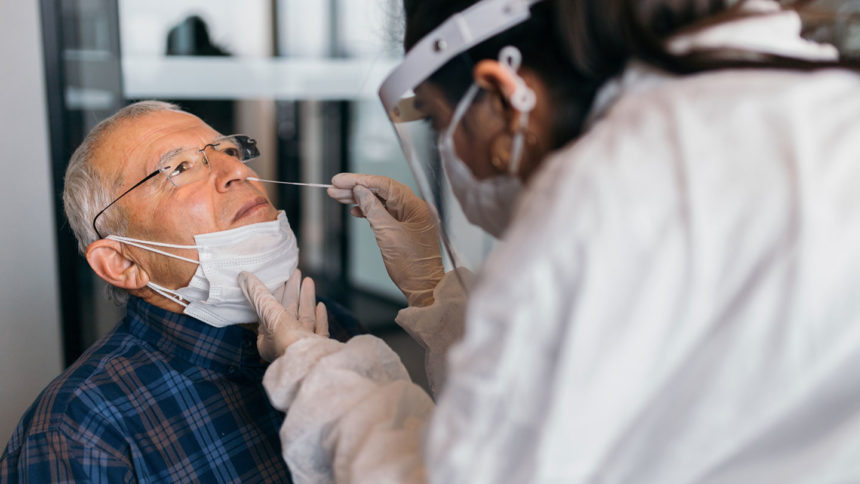
Vaccinated people with cancer or Alzheimer’s disease are significantly more likely to experience a COVID-19 breakthrough infection, finds a pair of studies from researchers at the Case Western Reserve University School of Medicine.
Vaccinated seniors with dementia had a more than 8% risk of breakthrough COVID-19 infection, compared to a 5.6% risk for members of the same age group without dementia, according to a study analyzing electronic health data from more than 262,000 older adults, published in Alzheimer’s & Dementia last month.
In a separate study, researchers found that vaccinated people with cancer had a 13.6% risk of breakthrough infections, whereas vaccinated people without cancer had a 4.9% risk. They also found that breakthrough infections in patients with cancer were associated with significant and substantial risks for hospitalizations and mortality. These findings ran in April in the Journal of the American Medical Association Oncology.
The authors of both studies said vaccinated people from these populations have a greater need for mitigation tactics such as mask-wearing, especially as new virus variants continue to emerge and vaccine immunity wanes over time. Mask mandates and other preventative measures by state and local governments were increasingly rolled back over the course of the two studies, allowing researchers to track the risk of breakthrough cases as mitigation measures began to disappear.
“Patients with dementia have a significantly higher rate of breakthrough COVID infections after vaccination than patients of the same age and risk factors other than dementia,” said Pamela Davis, M.D., Ph.D, a professor at the Center for Community Health Integration at Case Western and a study co-author. “Therefore, continued vigilance is needed, even after vaccination, to protect this vulnerable population. Caregivers should consider ongoing masking and social distancing, as well as booster vaccines to protect these individuals.”





